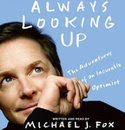There are several different theories pertaining to education. Three different theories are: the functionalist theory, the interactionist theory, and the conflict theory. These three theories are important to understanding different philosophies of education. The following sections will describe the previous three theories as well as their perspectives, expectations, and how the theories fit into my own personal philosophy of education.
Theories
The first of the three educational theories is functionalism. This theory believes that school is a place to preserve and foster social unity and maintain social order (Webb, Metha, & Jordan, 2010). The functionalist perspective believes that the school should deal with the “dominant” norms and practices of society (Webb, Metha, & Jordan, 2010). Therefore the expectations of this theory are that the school’s lessons should teach both economic and political norms but also cultural practices to students so that they will be knowledgeable and skilled in the global world (Webb, Metha, & Jordan, 2010). This theory differs from the other three in many ways; however it can be overlapped with the others to form a neat partnership of views.
The interactionist theory can be described as a combination of the functionalist theory and the conflict theory (Webb, Metha, & Jordan, 2010). The interactionist perspective focuses quit a lot on “school life” and the social aspects of school (Webb, Metha, & Jordan, 2010). This perspective dictates expectations of following certain educational sociological roles; such as how the teacher perceives students and how that will affect their ability to learn in the classroom (Webb, Metha, & Jordan, 2010). The perspectives and expectations of education in regards to the interactionist theory are opposite and critical of the other three theories, but can be combined with them to create a more equal educational theory.
The conflict theory is as simple as its name. The conflict theory can be best described by its own name. It is all about conflict within the school setting. The conflict perspective is focused on the different conflicts that occur within the school environment (Webb, Metha, & Jordan, 2010). Therefore the expectations that the conflict theory has for schools is that they will be a place of hierarchical relationships (Webb, Metha, & Jordan, 2010). The three theories must be observant of the natural “hierarchical” relationships in the school setting, but the conflict theory differs quite a bit from the other two theories.
to be continued...

No comments:
Post a Comment